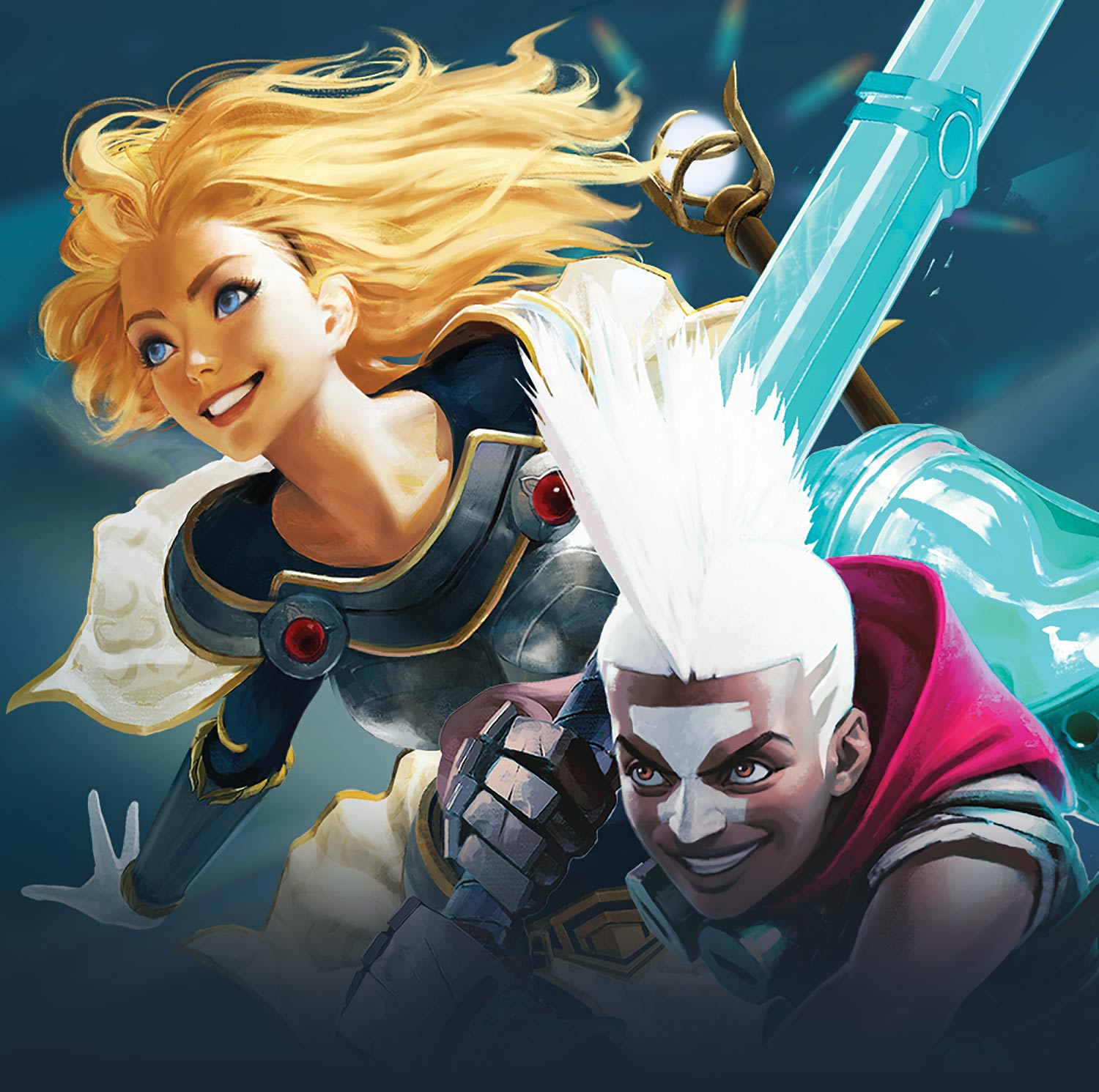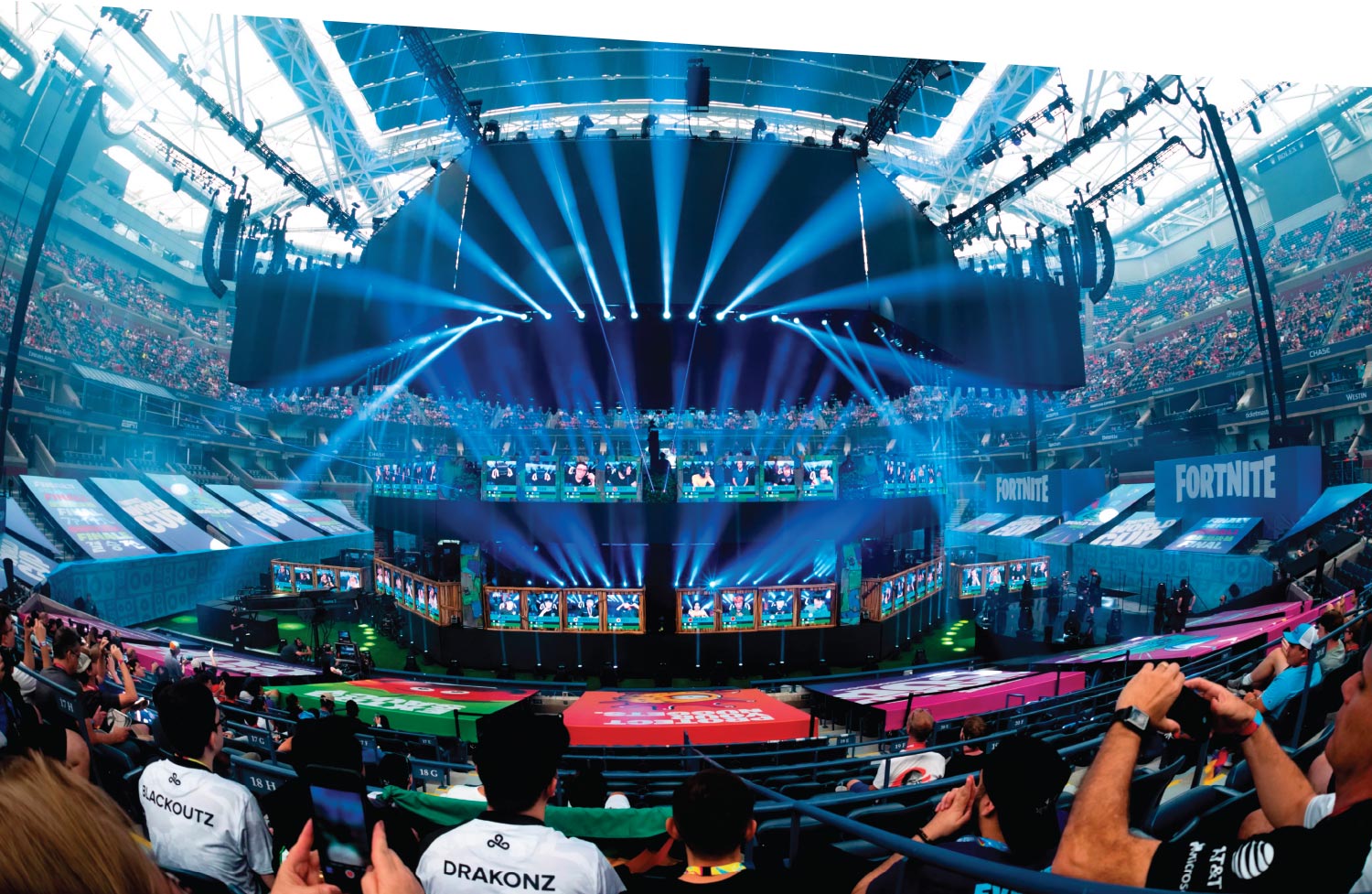

 alk into a firm where video game industry lawyers practice and, depending on your opinion, the goings-on can look either awfully fun or awfully nerdy. Yes, the attorneys can (and do) sometimes bill clients for playing games. Sean Kane ’98, who is widely acknowledged as a pioneer in the field, can plug into any conference room at his firm and play. In his office, he has framed remnants of Atari games dug up from the New Mexico desert—for years, legend had it that the company buried them after going bankrupt, which proved to be true.
alk into a firm where video game industry lawyers practice and, depending on your opinion, the goings-on can look either awfully fun or awfully nerdy. Yes, the attorneys can (and do) sometimes bill clients for playing games. Sean Kane ’98, who is widely acknowledged as a pioneer in the field, can plug into any conference room at his firm and play. In his office, he has framed remnants of Atari games dug up from the New Mexico desert—for years, legend had it that the company buried them after going bankrupt, which proved to be true.
In the early 2000s, pre-smartphone, Kane spotted a legal future in the industry and even taught a (packed) course on video game law at Fordham. Today, the kid who once put countless quarters into the James Bond–inspired arcade game Spy Hunter is the interactive entertainment co-chair at Frankfurt Kurnit Klein & Selz, where he advises more than 100 clients on games like Fortnite, among others. “When I’d first go to legal events, people would say, ‘Being a video game lawyer is a thing?!’” But the response from the video game industry was great. “They see the value of lawyers who understand the industry.”
Meanwhile, in the Los Angeles office of Mitchell Silberberg & Knupp, a triangular building with 60-degree angles, one angle is home to a gaming lounge with multiple consoles. “Like most office buildings, the walls are a little thin so you can’t go mad with the cheering,” notes Eleanor Lackman ’03, an entertainment and IP litigator who, among other things, deals with the legal side of e-sports—video games played competitively for live audiences, often by professionals. “You can’t work in entertainment and sports without knowing e-sports,” she notes. “No way. Not these days.”

Of course, with all this money—and the constantly changing brave new world of gaming—come enough legal issues to challenge a Battle Bus of lawyers (for the nongamers out there, Battle Bus featured prominently in Fortnite’s last iteration). Many of the lawyers on the bus happen to be graduates of Fordham Law School, working to help shape the legal framework of this new national sport. Quite simply, says Kane, the work calls for an ability to come up with a body of case law for the industry. “We’re looking at experiences that never even existed five years ago and trying to say what law should apply,” he says.


With their hundreds of hours of story lines, dizzying detail, and morphing technology, video games are about pushing boundaries (and not just of the legal variety). Yet getting lawyers to talk about the legal issues involved with video games can be tricky because of pending litigation. And to make matters more complicated, even attorneys who practice what you might call “video game law” sometimes argue that there is no such thing. Instead, there’s intellectual property law, contract law, trademark law, and various other areas of law as applied to the industry. “There aren’t a ton of laws that are specific to games,” says Chris Reid ’09, the in-house counsel for mobile games publisher Tilting Point. “It’s more about what the implications of existing laws are for the kind of business that games do.”
These days, many games are, indeed, works of art, as intricate and slick and complex as movies, except gamers are in the leading roles, driving in a storm through the fictional city of Los Santos (in Grand Theft Auto V), where neon signs reflect in puddles and on the rain-slicked hoods of gamers’ cars. Then there’s Red Dead Redemption 2, set in an imagined version of the American West in the year 1899, where more than 40 species of bird life are so accurately depicted that a birder wrote a paean to the game on the Audubon Society website.

Kane is passionate about not only games but also movies and old-fashioned ink-on-paper books.
As a content lover, IP felt like a natural choice. “I went to a lot of conferences on technology, I started reading to see what areas were really burgeoning, and I realized that there was almost nobody focusing on video games,” says Kane.
After six years at a firm, and noticing the rise of multiplayer online games in particular, he decided to hang out a shingle as a video game lawyer, correctly predicting that with people playing against one another, and potentially creating or earning items that could then be traded or sold to other players, legal issues would no doubt arise. “I saw the technology they were starting to use to make these games sort of interoperative and collaborative so that individuals could play from all over the place,” says Kane. “I was like, Ah, okay, now that you’re not just playing against a machine but you’re playing against another person or dozens of people, there’s going to be some really interesting legal issues coming out of it.”
One legal issue involves loot boxes, digital goody bags that offer players features like special character outfits and powerful weapons, for which gamers pay with cold hard cash (or, more likely, with a saved credit card). Does this activity count as gambling? Given that the hundreds of territories where games are played have different rules about gambling, as do all 50 states, the answer is unclear. “Every day you get a different regulator or someone trying to pass a law in this area, so you really have to be paying attention,” says Kane. No wonder he has a list of Google Alerts longer than a terms of service contract.





There are also various regulatory issues to deal with: A 2017 article in the Fordham Law Review, titled “You Must Construct Additional Pylons,” analyzed the unique challenges of e-sports governance. It is also quite possibly the first law journal article whose author’s note includes a thank-you to “my FIERCE guildmates for cultivating a lifelong love of video games.”
Diversity is also an issue in the industry, one that has gotten more attention in recent years. Kane, for one, believes that representation of women and minorities in the gaming industry has room for improvement. “While most game companies are looking to increase diversity, the usual lament is that they are having a difficult time finding qualified and diverse people,” he says. According to Kane, the indie world of video games is making the most progress, both in terms of more diverse types of games and the people who work for those companies. “I believe everyone is hopeful that this trend will continue and create a whole new generation of diversity that will bleed into industry leaders,” says Kane, who is also one of the co-founders of the eight-year-old Video Game Bar Association.
But even Kane can’t predict what will happen further down the road because no one knows quite what video game developers might come up with. “Lawyers don’t like to say, ‘I don’t know, I have to do some research,’ but you have to,” says Kane. “We’re not looking at 16th-century Dutch tulip merchants and a business model they came up with 300 years ago, along with the three centuries of law that have been built upon that. We get to create law, and that’s really exciting.”